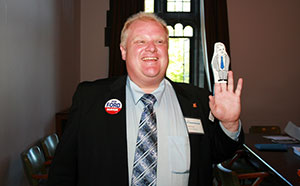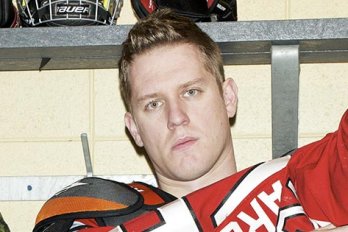“It’s more than a game,” croons the announcer promoting an upcoming instalment of CBC’s Hockey Night in Canada. “It’s our game.”
What, exactly, does it mean to say that hockey is ours? Does it mean we invented it? We know the sport was codified in Canada (students at McGill are said to have drawn up the first rules, borrowed from field hockey, in 1877), but similar games, played on ice with balls and curved sticks, had been around for ages. The English called it bandy, the Irish hurley, the Scots shinty. Modern hockey’s DNA also contains traces of ball-and-stick games played by First Nations, long before Europeans arrived. So its origins are, to say the least, murky. Basketball we can claim (sort of), because James Naismith was born in Almonte, Ontario, although he invented the game in Massachusetts; hockey, not so much.
Then is it ours because we perfected it? That depends on how you keep score—pardon the pun. World championships? Russia and the former Soviet Union have won more than Canada has: twenty-six to our twenty-four. We won eleven of those in the competition’s first twenty-five years—and only five in the most recent twenty-five. Olympic gold medals? Since 1920, when ice hockey became an Olympic sport, Canadians have stood atop the podium eight times, with the Russians, at seven, close behind. Once again, however, we seem to be losing our edge, having won just two golds in the past ten Winter Games. The proportion of Canadians in the National Hockey League? Until 1975, it hovered around 90 percent, but it has been falling ever since and now stands slightly above 50 percent. It’s true, we still dominate the scoring statistics (in the 2012–13 regular season, thirty of the top fifty scorers were Canadian), but in six of the past ten years the Hart Trophy, for the league’s most valuable player, has been awarded to a Russian or a Swede. So it’s difficult to make the case that no one plays the game as well as we do.
All right. Is hockey ours because we love it more than anyone else? Fifty years ago, when Saturday night was hockey night in Canada, it may have seemed so. Today the sport’s television audience, as a segment of the population, is actually smaller. To put it another way, if three million of us watch Hockey Night in Canada (and that’s on a good night), more than 90 percent of us are doing something else. According to University of Lethbridge sociologist Reginald Bibby, only three in ten adult Canadians now follow the sport very or fairly closely, which suggests a waning ardour. Also declining is the number of young players, which has fallen to 11 percent among boys and girls aged five to fourteen.
Perhaps we call it our game because we are minor players in other professional sports—football, baseball, basketball, and soccer—and if we can’t claim hockey, what can we claim? We tell ourselves it’s our game, despite evidence to the contrary, because it makes us feel good. Hockey is our national religion only in the sense that its adherents, the fans, are true believers, a fervent minority whose leaders (the NHL, its broadcast partners, and their advertisers) have a financial interest in promoting the notion that it is ours. No surprise, then, that the credo “our game” was trotted out repeatedly when the NHL triumphantly announced a twelve-year, $5.2-billion deal with Rogers Communications for Canadian broadcast and media rights. The Church of Hockey was comforting the faithful.
I confess that I love the game. How else to explain a lifelong attachment to the feckless Toronto Maple Leafs? When Bruce Kidd and I wrote an angry book called The Death of Hockey in 1972, the year Canada prevailed in a cliffhanger series against the Soviet Union, it was an act of love; we despaired that hockey was becoming, like show business, just another way to make money. So yes, I love the game, and like millions of Canadians I’ll be watching as much of it as I can this month at the Sochi Olympics. But do I believe it’s ours? No, because I also love the truth, and the truth is that hockey belongs to the world.
This appeared in the March 2014 issue.





